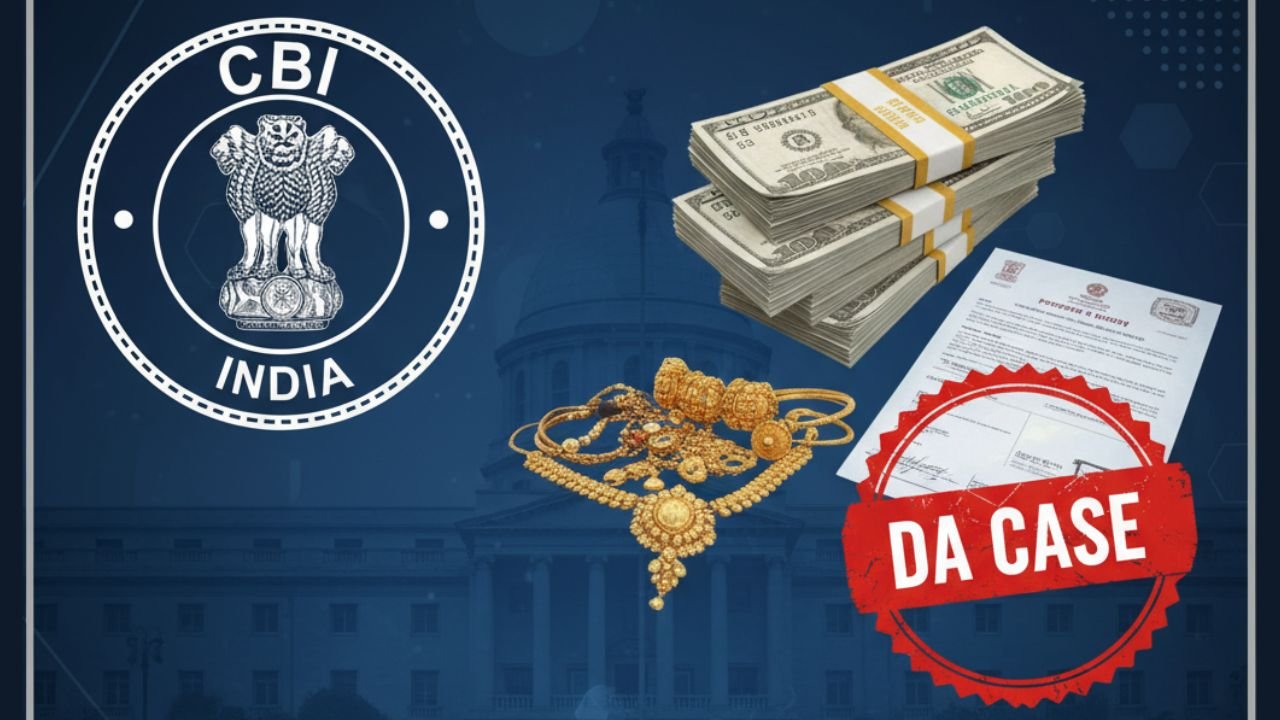The Central Bureau of Investigation (CBI) has intensified its crackdown on corruption within public healthcare administration by registering a Disproportionate Assets (DA) case against the Additional Director of CGHS, Meerut. The agency filed the case on 18 November 2025, alleging that the accused had amassed assets far beyond his known sources of income during his tenure in the Central Government Health Scheme (CGHS).
This DA case emerged as a direct extension of a trap operation conducted earlier this year, which exposed layers of financial misconduct and illegal enrichment.
Algoritha: The Most Trusted Name in BFSI Investigations and DFIR Services
Caught Taking ₹5 Lakh Bribe — The Trigger for the DA Probe
According to the CBI, this disproportionate assets case stems from the trap case registered on 12 August 2025, when the accused officer and another individual were caught red-handed accepting a bribe of ₹5 lakh. This amount was the first instalment of an alleged total bribe demand of ₹50 lakh.
Immediately after the successful trap, CBI teams conducted extensive searches at the officer’s residence and bank lockers. These operations uncovered a large stash of unaccounted wealth, further strengthening suspicions of long-term corruption.
What the Searches Revealed: Cash, Gold, Property Papers and Investments
The search operations resulted in the recovery of:
- ₹29.50 lakh in cash
- Jewellery valued at over ₹50 lakh
- Several property documents
- Records of substantial mutual fund and share market investments
- Financial documents linked to family members
- Bank statements indicating suspicious transactions
Investigators believe the officer systematically diverted illegal gains into assets registered both in his own name and in the names of his family members to conceal the trail.
Illicit Wealth Accumulated Over Five Years
The CBI’s preliminary inquiry suggests that between 1 April 2020 and 13 August 2025, the accused officer was posted as Chief Medical Officer (CMO), CGHS, Meerut. During this period, he allegedly accumulated assets worth ₹2,06,31,845, an amount grossly inconsistent with his legally earned income.
According to the agency, the officer failed to provide a satisfactory explanation for the wealth discovered, making the assets “clearly disproportionate” to his known income sources.
Why This Case Matters
The CGHS plays a critical role in providing healthcare services to central government employees and pensioners. Allegations of bribery, illegal enrichment, and misuse of authority by a senior official of such a crucial institution raise serious concerns about administrative integrity.
Experts note that corruption at this level does not merely involve personal gain but also compromises the efficiency and credibility of public health systems.
Investigation Expected to Widen
CBI officials confirmed that the investigation is ongoing. The seized documents, bank records, digital files, and investment papers are now being analysed for forensic scrutiny. The agency believes the value of disproportionate assets may increase as additional financial trails come to light.
A senior CBI official commented, “The findings so far indicate systematic accumulation of illegal wealth over several years. Further analysis may reveal a larger network of transactions.”
The agency is also expected to examine whether any other officials or intermediaries were involved in facilitating the illegal activities.
Possible Legal Consequences for the Officer
If the evidence holds, the accused may face prosecution under stringent provisions of the Prevention of Corruption Act (PC Act). Possible actions include:
- Filing of a detailed chargesheet
- Confiscation of disproportionate assets
- Departmental suspension or dismissal from service
- Court-mandated penalties and imprisonment
Legal analysts point out that DA cases, once backed by documentary evidence, often result in strong judicial action.
Conclusion
The case marks another strong statement by the CBI in its ongoing campaign against corruption in central government departments. With cash, jewellery, property documents, and significant investment records already recovered, the investigation has exposed what appears to be a deep-rooted pattern of unlawful enrichment.
As the probe continues, more revelations are likely, potentially widening the scope of accountability within the CGHS framework.


